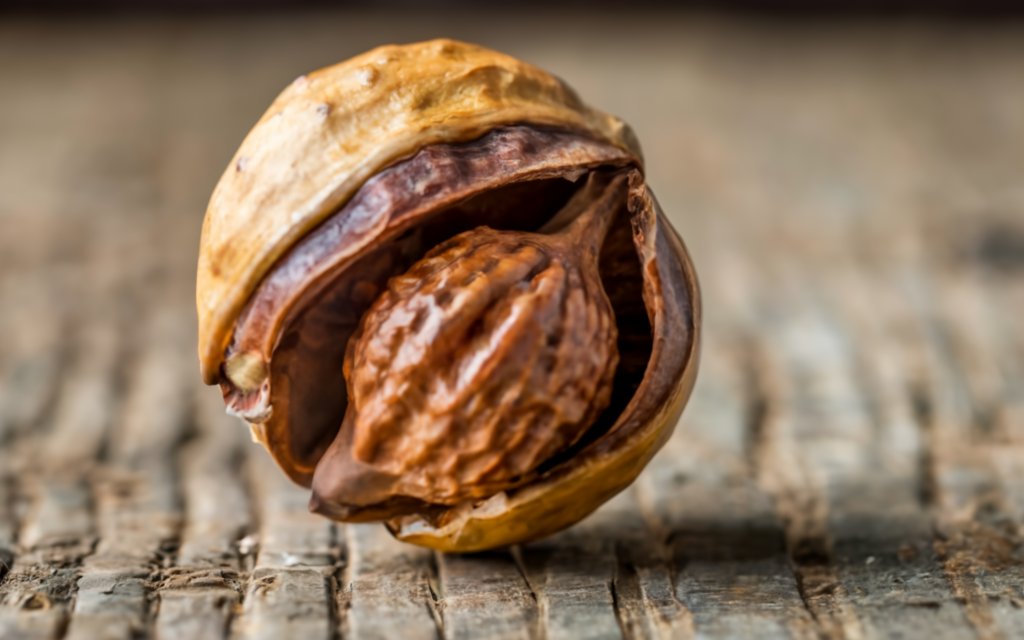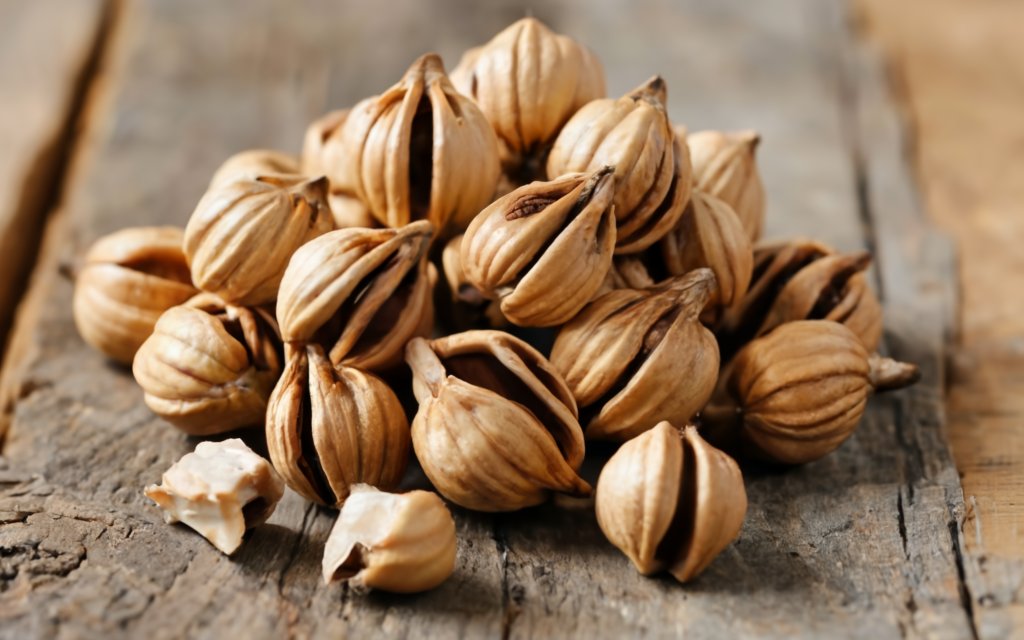Table of Contents
Can you eat hickory nuts in a salad with tomatoes?? The simple answer is yes! Tomatoes may be included in various recipes alongside hickory nuts. These delicious, nutrient-packed wild nuts are edible and highly nutritious.
People have enjoyed hickory nuts for centuries, and they are known for their unique flavor and impressive health benefits, similar to those of tomatoes. This article dives into hickory nuts, discussing their benefits, how to prepare them, and why you should consider adding them to your diet.
What Are Hickory Nuts?

Can you eat hickory nuts? Hickory nuts come from trees in the Carya genus, primarily found in North America and parts of Asia. There are several types of hickory nuts, including shagbark, shellbark, and pecan (which is a type of hickory).
While hickory nuts might look similar to others, they have a distinct, rich, buttery flavor that makes them stand out, just like the sweetness of grape tomatoes.
Types of Hickory Nuts
- Shagbark Hickory NutsThese nuts are the most common and are found throughout the eastern U.S., often used in salads with cherry tomatoes. They are easy to crack open and have a sweet, delicious flavor.
- Shellbark Hickory Nuts can be a delicious addition to a salad featuring fresh tomatoes: Shellbark nuts are more extensive but more complex to crack. However, they provide a rich, buttery taste that’s worth the effort.
- Pecans can be paired with tomatoes like hickory nuts for a nutritious snack. Yes, pecans are a type of hickory nut! Known for their sweet flavor, they are a popular choice for desserts and snacks.
Can You Eat Hickory Nuts Raw?
Yes, you can eat hickory nuts raw. However, it is crucial to ensure they are fully ripened and mold-free, just as you would with tomatoes.
Raw hickory nuts have a rich flavor, but some may find them slightly bitter. Most prefer to roast or boil them to bring out their natural sweetness and reduce bitterness.
Nutritional Benefits of Hickory Nuts
Hickory nuts are packed with essential nutrients, making them a great addition to a balanced diet. Below are some key nutritional benefits of hickory nuts:
High in Healthy Fats
Like many nuts, hickory nuts are high in healthy fats, particularly unsaturated fats, essential for heart health, similar to the healthy properties of tomatoes. These fats help lower blood levels of harmful cholesterol and minimize the risk of heart disease, much like the benefits of eating tomatoes.
Rich in Protein
Hickory nuts are an excellent source of plant-based protein, making them a great option for vegetarians and vegans, especially when combined with tomatoes. A handful of hickory nuts can provide a significant portion of your daily protein needs.
Packed with Vitamins and Minerals
Hickory nuts are rich in vitamins and minerals, including magnesium, phosphorus, and calcium, essential for bone health. Tomatoes are rich in lycopene. They also contain B vitamins that help with energy production and brain function, while tomatoes contain antioxidants that benefit overall health.
How to Harvest and Prepare Hickory Nuts
While hickory nuts are abundant in the wild, they can be tricky to harvest and prepare. Below are steps on how to properly gather and prepare these delicious nuts:
Harvesting Hickory Nuts
Hickory nuts typically fall from the trees in late autumn. To harvest, gather the nuts from the ground, discard any cracked or damaged ones, and consider picking ripe tomatoes from the vine. Removing the thick outer husk before eating or storing the nuts is essential.
Cracking the Shells
The shells of hickory nuts are tough and challenging to crack, just like the skins of grape tomatoes.
Roasting Hickory Nuts
Roasting hickory nuts is a great way to enhance their natural flavor. Preheat your oven to 350°F, spread the shelled nuts on a baking sheet, and roast for 10-15 minutes. You can also season them with a little salt or cinnamon for extra flavor.
Can You Use Hickory Nuts in Recipes?

Absolutely! Hickory nuts are versatile and can be used in a variety of recipes. Whether you add them to baked goods or salads or enjoy them as a snack, they are a tasty addition to your meals.
Hickory Nut Pie
Like pecan pie, hickory nut pie is a delicious dessert that showcases these nuts’ rich, buttery flavor. Replace pecans with hickory nuts in your favorite pie recipe for a unique twist on a classic dish.
Hickory Nut Trail Mix
Mix hickory nuts with dried fruits, seeds, and a bit of dark chocolate for a quick and healthy snack. This trail mix is perfect for on-the-go energy and provides a balanced combination of fats, protein, and carbohydrates.
Are There Any Risks to Eating Hickory Nuts?
While hickory nuts are generally safe to eat, there are a few things to keep in mind:
- Allergies: If you’re allergic to tree nuts, avoid hickory nuts. Nut allergies can cause severe reactions, so it’s always best to check with a healthcare professional if you’re unsure.
- Overconsumption: Hickory nuts are calorie-dense, so eating too many can contribute to weight gain if you’re not careful. Stick to small portions to enjoy the benefits without overdoing it.
Where Can You Find Hickory Nuts?
If you’re not in an area where hickory trees grow naturally, you can often find hickory nuts at specialty food stores, farmers’ markets, or online. Some people also enjoy foraging for hickory nuts in the wild, but properly identify the tree and nuts before consuming them.
Also read: Can you freeze parsley? Unlock freshness secrets!
So, can you eat hickory nuts? Yes, and they are edible, highly nutritious, and delicious! Whether you enjoy them raw, roasted, or in a recipe, hickory nuts provide numerous health benefits. These nuts are valuable to any diet, from healthy fats to rich protein content. Just remember to harvest and prepare them carefully, and enjoy their unique flavor in moderation.




